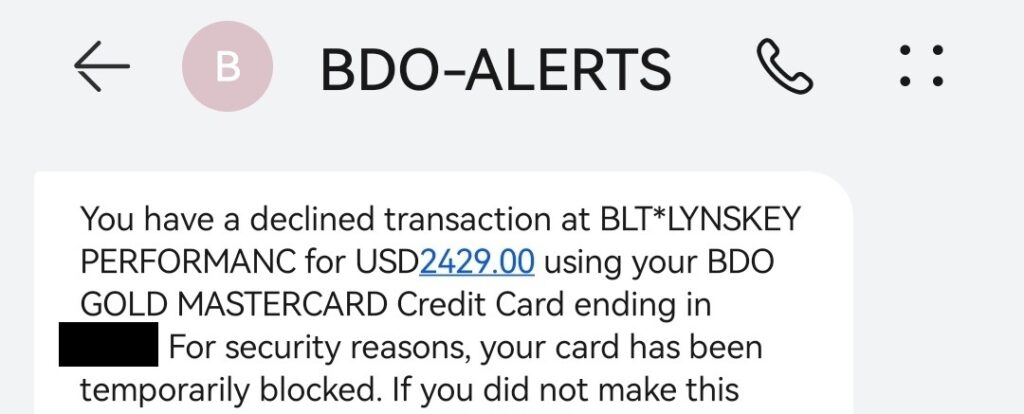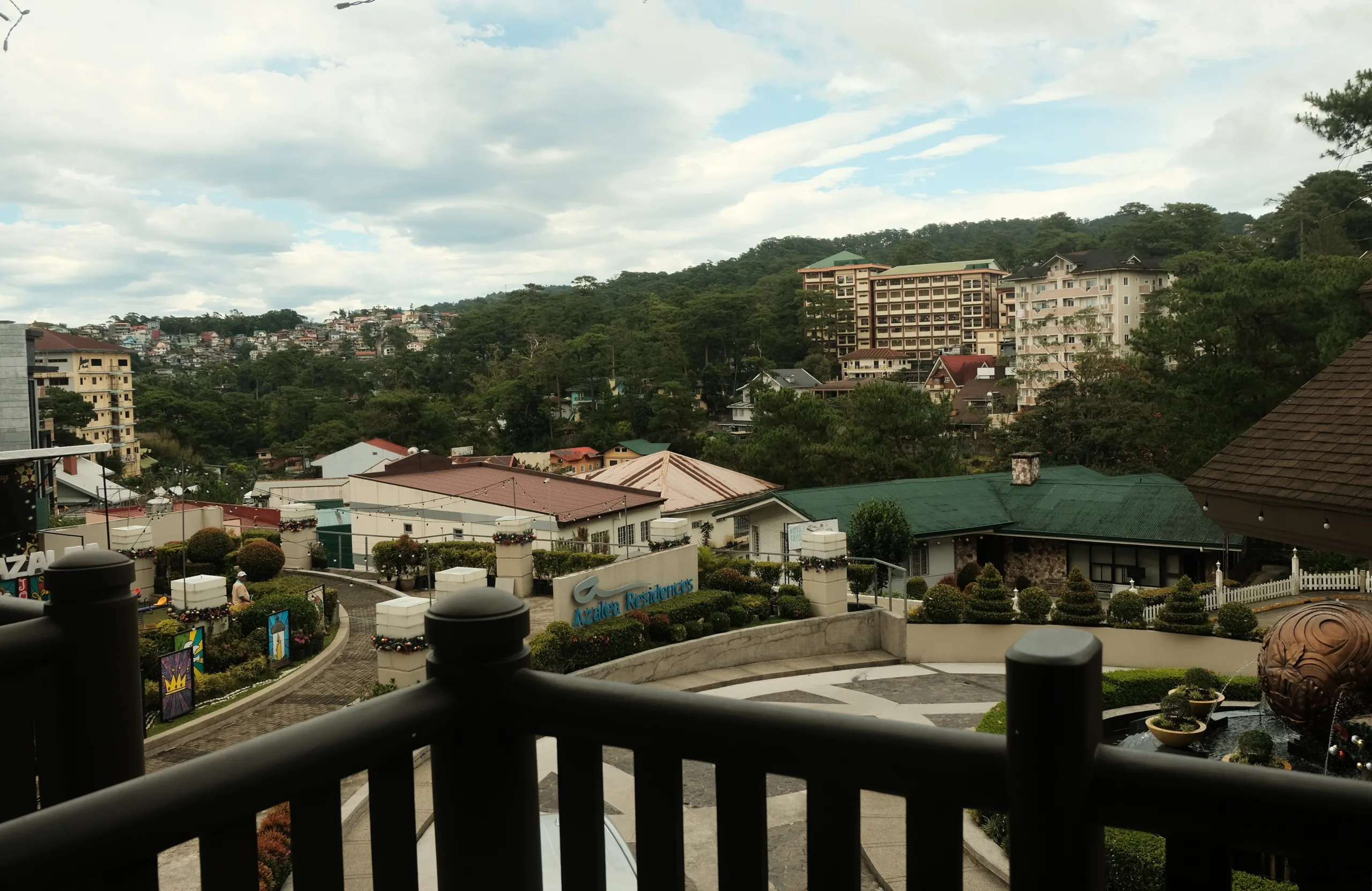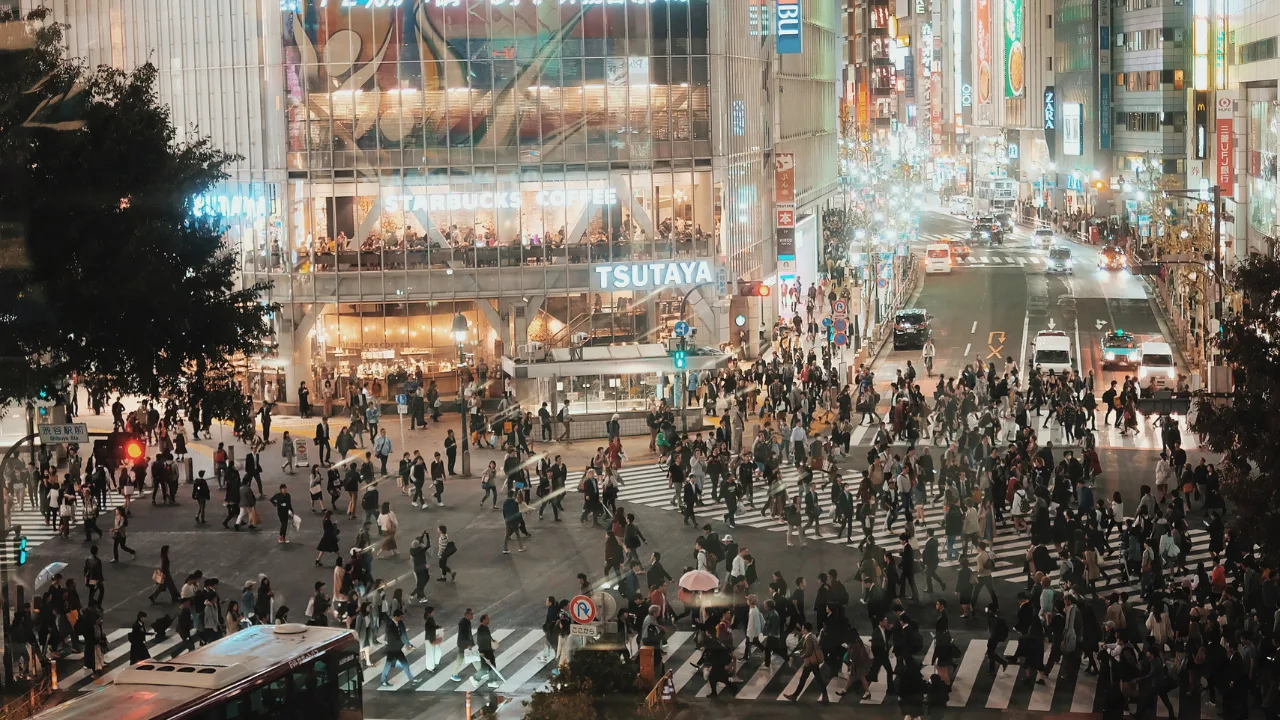When my smartwatch buzzed and the message appeared from BDO-OTP, I already knew that my credit card was compromised.
I checked my phone and there was a notification stating that a recent credit card transaction was denied. It was for an online purchase amounting to $2,429 (around Php 130,000).
I received notifications from BDO alarming me that someone was trying to make transactions using my BDO credit card.

In less than 10 minutes, I received another OTP message. I followed the instruction in the text and blocked the transaction. I received text confirmation from BDO. They placed my card on hold and advised that a BDO officer will call me (nobody called). The second transaction was for Php 9,000 -worth of purchases.
I calmly told my friends that my credit card was compromised. At that point, I already knew what happened – it was my mistake.
The last attempt was for a subscription. . My friends and I were laughing at how the fraudsters tried hard to use the card. But somehow, I felt like I still have control of the situation.
I called the bank after 2 days (I hate calling helplines). During the call, I verified my last card transaction and confirmed the declined attempts to use my card. BDO will process my new card and it should arrive in 3 days.
Although I was feeling confident about the BDO security feature, the officer said that there are some online sites that do not ask for OTP. So we should really protect our credit card details.
So what happened?
A little background on my BDO credit card: I have had it for 13 years. My cardholder has an RFID-blocking feature. I rarely use it for online transactions (I mostly use digital apps like Gcash, Maya, or Paypal). I only have one account enrolled on the auto-pay feature (my Pru Life UK policies). It is not linked to any app (even checked with my Paypal).
I usually use it at retail shops and restaurants/cafes. I think it is my fault that I am very trusting when settling credit card bills in restaurants and hotel bars. I freely give my credit card to the waitstaff who brings it to the cashier. There are scenarios where my credit card was exposed.
Lesson learned. Napaka-trusting ko sa part na yun.
How Credit Card Fraud Happens
Credit card fraud happens when someone gains access to your credit card and uses it to make a purchase. Beware of how frauds obtain your information through:
- Lost/stolen credit card
- Hacked computer
- Hacked email
- Skimming in restaurants and gas stations
- Phishing emails or texts (notification about prizes won, etc)
How to Prevent Credit Card Fraud
Prevention is better than the trouble of calling your bank and reporting fraud. Sharing some tips that you may find useful.
- Do not give your credit card information to anyone.
- Do not take photos of your credit card (and post online).
- Do not keep copy of your credit card information.
- Use RFID-blocking card holder (perfect for traveling).
- Do not use it on unsecured sites or untrusted online sites.
- Do not use public WIFI when doing financial transactions.
- When settling bills in a restaurant, ask the wait staff to bring the credit card terminal to the table instead. Make sure you see where your credit card goes when you hand it to someone.
- My friend also suggested covering Credit Card CVV. I found this cute sticker from Lazada and will probably purchase this 8.8.
What to Do If You are a Victim of Credit Card Fraud
I am thankful that my bank was able to alert me of the attempt to use my credit card before the fraudsters used up my credit limit. If you find your credit card bill with unauthorized purchases, here are the steps you need to do:
- Call your credit card issuer / bank immediately.
- Change your passwords and PINs.
- Unlink your apps and accounts to your credit card to prevent access to your other information.
I always keep a copy of my credit card transactions so I can reconcile them with my credit card bill. This way, I can easily review and dispute any unauthorized transaction.
I hope you find this post helpful.
If you have any tips you want to add, feel free to leave a comment.
Related Read










